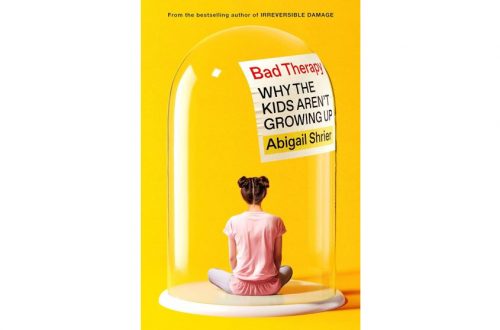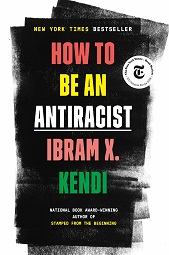 Jeremy Walker, New Calvinism Considered: A Personal and Pastoral Assessment (EP Books, 2014). 126pp. $10.99.
Jeremy Walker, New Calvinism Considered: A Personal and Pastoral Assessment (EP Books, 2014). 126pp. $10.99.
If you are wondering what the so-called “New Calvinism” is, Jeremy Walker has just written a short book trying to explain it. In The New Calvinism Considered: A Personal and Pastoral Assessment, Walker explains what the theological hubbub is all about. Walker identifies four characteristics of this movement. First, and most obviously, it is Calvinistic. But its Calvinism tends to be limited to soteriology as there is a good bit of diversity on other aspects of Reformed faith.
Second, the movement is marked by big personalities. “New Calvinism” seems to cluster around celebrity pastors and theologians who serve as theological figureheads for the movement. As a result, Walker alleges a kind of cult of celebrity among the new Calvinists. Indeed, a short appendix to the book includes a seven page list of pastors, preachers, bloggers, and others who are “Individuals of Note” to new Calvinism.
Third, it is a movement of conferences, coalitions, and networks of like-minded Christians who hold broadly to the doctrines of grace (think T4G, TGC, Acts 29, Sovereign Grace Ministries, just to name a handful).
Fourth, and perhaps most interestingly, it is a movement that is slowing down. Walker writes:
“The whole machine is slowing down. There is not the same buzz, the same energy, the same drive as once there was… this is not the rushing mountain stream it once was… I cannot be absolute, but there seems to be an easing of the pace and an awareness that we are entering a period of transition with regard to new Calvinism” (pp. 38-39).
The majority of the book comprises an assessment of the movement. Under commendations, Walker includes the following characteristics: Christ-oriented and God-honouring, Grace-soaked, missional, Complementarian, immersed in technology and new media, and preaching.
But Walker gives most of his attention to “Cautions and Concerns” about the movement. Under this rubric he includes pragmaticsm, commercialism, an unbalanced view of culture, a troubling approach to holiness, ecumenism, unresolved issues surrounding charismatic gifts, and triumphalism. Walker is careful to point out that no single personality in the movement is guilty of all of these concerns. Some are guilty of none, but they are concerns nonetheless. And he gives specific examples in which these issues have come to the fore (e.g., The Elephant Room 2).
Walker writes not as one who is ambivalent about the defining theological issues. He is a particular Baptist minister in England, so his theological framework is very much sympathetic to the aims of the new Calvinists. Nevertheless, Walker pulls no punches in critiquing the movement, and it is precisely here that Walker offers an assessment worth our time to consider. Is he correct in all that he alleges? No, probably not. Is this the final word in assessing the movement? Certainly not. Nevertheless, I found myself chastened in reading the pages of this book. Perhaps you will too.




8 Comments
Jason Delgado
Here is an interview with the author on the book… it goes into some more stuff that the book doesn’t cover: http://confessingbaptist.com/podcast035/
David A Booth
If you ever get tired of the New Calvinism I warmly invite you to consider the Old Calvinism. http://opc.org/
Best wishes,
David A Booth
Jay
David, that’s not entirely fair. There are a number OPC guys who have co-opted a number of New Calvinist (esp. hyper-calvinist) stances. The R2K guys come to mind immediately. Then, on the other side of the spectrum you’ve got the Rushdoony fellows and theonomists. Granted, the OPC denomination doesn’t formally commend either of these views, but some of your more vocal chaps are more of a New Calvinist stripe when compared with Old Calvinism.
David A Booth
Hi Jay,
There aren’t any denominations that have not been impacted by the New Calvinism. But if you look at the smaller NAPARC denominations such as the OPC, URC, and RPCNA you will find that they are more aligned with the old Calvinism than the New.
One of the things that strikes me about the rise New Calvinism is how many people seem to think that simply believing in the sovereignty of God in salvation makes one a Calvinist.
Your brother,
David
David A Booth
I should add, unless my comment be misunderstood, that I deeply love my brothers at Southern Seminary and regularly recommend the teaching of (some of the) men associated with the New Calvinism to the members of my congregation.
Best wishes,
David
Jay
Thanks, David. Agreed. I’m in the PCA, but also appreciate Calvinist brothers in Southern Seminary and Baptist Theological Convention. I think we have much to learn from one another across the denominations. I love the high Calvinist ecclessiology, but also appreciate the mission and evangelistic fervor that others bring. Both of these are right. Love that the Lord is both strengthening and growing his universal church through these cross denominational efforts. Grace and peace, brother!
James Bradshaw
It seems that the Calvinism/Arminian debate comes down to this: which of God’s characteristics defines Him as God: His omnipotence or His love and benevolence? You can’t have both. Either God love extends to all of humanity or it does not. Perhaps a God who is unwilling or unable to exert His power over the universe is unworthy of worship?
a
Lauren Bertrand
Some of the Reformed/Calvinist churches really seem to be gaining a foothold among young people in urban areas, or liberal college towns. In other words, they are grabbing people who might otherwise go (or certain had gone in the past) to Mainline churches.